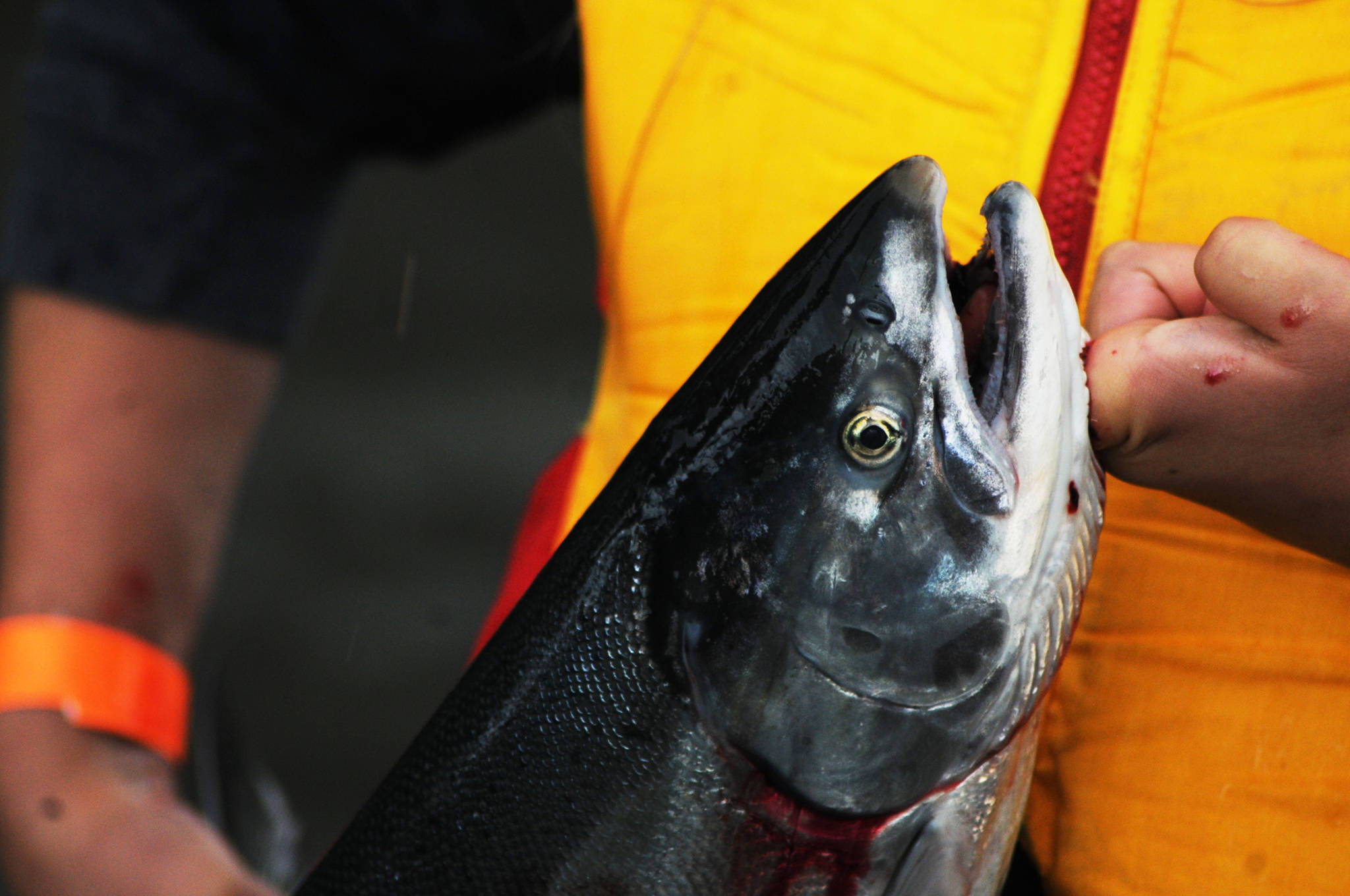The University of Alaska is diving into broad social issues tied to salmon, with the hope of finding solutions to longstanding conflicts and future challenges.
The University of Alaska Fairbanks’ College of Fisheries and Ocean Sciences is launching the Alaska Center for Salmon and Society, focused on engagement, research and education. That includes a broad range of topics within salmon fisheries, oceanography, anthropology and politics.
The mission of the center is meant to be broad, said Milo Adkison, director of the center and a College of Fisheries and Ocean Sciences researcher. The college has been considering a salmon center for several years, he said.
“There are a lot of pressing salmon issues, and there’s a lot of people in the university and elsewhere that are working on these issues, and it seemed like we needed something,” Adkison said.
From salmon fishing regulations to ocean science to the ongoing debate about salmon habitat protections, the center will host public forums and events to open up conversations about salmon, he said. The center is also launching a flagship course called Salmon and Society that explores the connections between salmon and people.
Salmon are embedded in the social and economic fabric of Alaska, affecting more than just fishermen. The Yes for Salmon ballot initiative, which has been approved by the Division of Elections, draws on many of these conflicts. Center for Salmon and Society held one of its first events, a discussion panel about the ballot initiative and salmon protections in general, in Kenai in December 2017.
The center also hosted meetings in Juneau and Fairbanks that drew out members of the public as well as legislators and members of the Board of Fisheries, Adkison said. They worked with different fishery groups as well — commercial fishing association the United Fishermen of Alaska co-hosted the salmon habitat policy forum in Kenai.
“The intimidating aspect is how much there is to do, but there are already a lot of people and organizations working on all of these issues,” Adkison said. “One of our main goals is to connect people, particularly the scientific community and other people who are not coming from a research background.”
The Center for Salmon and Society joins a number of dedicated science initiatives in the College of Fisheries and Ocean Sciences focusing on specific scientific and social issues, such as the Ocean Acidification Research Center, the Pollock Conservation Cooperative Research Center and the Coastal Marine Institute. It’s also among a number of recent efforts to find solutions to age-old user conflicts over salmon, such as The Salmon Project and the Alaska Humanities Forum’s Salmon Fellows program.
According to a March 2 announcement, UAF’s Center for Salmon and Society is partially funded by the Salmon Connect Partnership, which is a project of the New Venture Fund, a Washington, D.C.-based nonprofit. The Salmon Connect Partnership is funded by a November 2015 grant from the Gordon and Betty Moore Foundation for $2.3 million that also supports the Salmon Fellows and Salmon Project programs. Funding also comes from the College of Fisheries and Ocean Sciences and the center’s other partners.
UAF’s center includes both public events and research opportunities. Adkison said some of the issues they’re looking at working on include rural Alaskans losing access to fisheries, comanagement of fisheries between the state and Alaska Native groups and salmon habitat protections issues. The North Pacific Anadromous Fish Commission is planning a project for 2019 called the International Year of the Salmon, which one of the members of the faculty steering committee is looking into, he said.
“Our concept is to be sort of a resource for not just single issues, and not just particular problems, but to be sort of a resource for all the people that are working on salmon issues into the future,” Adkison said.
The University of Alaska has a number of academic centers that often make appearances in state politics, such as the University of Alaska Anchorage’s Institute for Social and Economic Research and Justice Center. The center will provide expertise the same way ISER does, but will involve more public engagement, Adkison said. They plan to include a variety of perspectives and work with everyone, he said.
“You can’t entirely control people’s perceptions of you, but you can act in a neutral way, and that’s definitely what we’re planning to do,” he said.
Reach Elizabeth Earl at eearl@peninsulaclarion.com.

